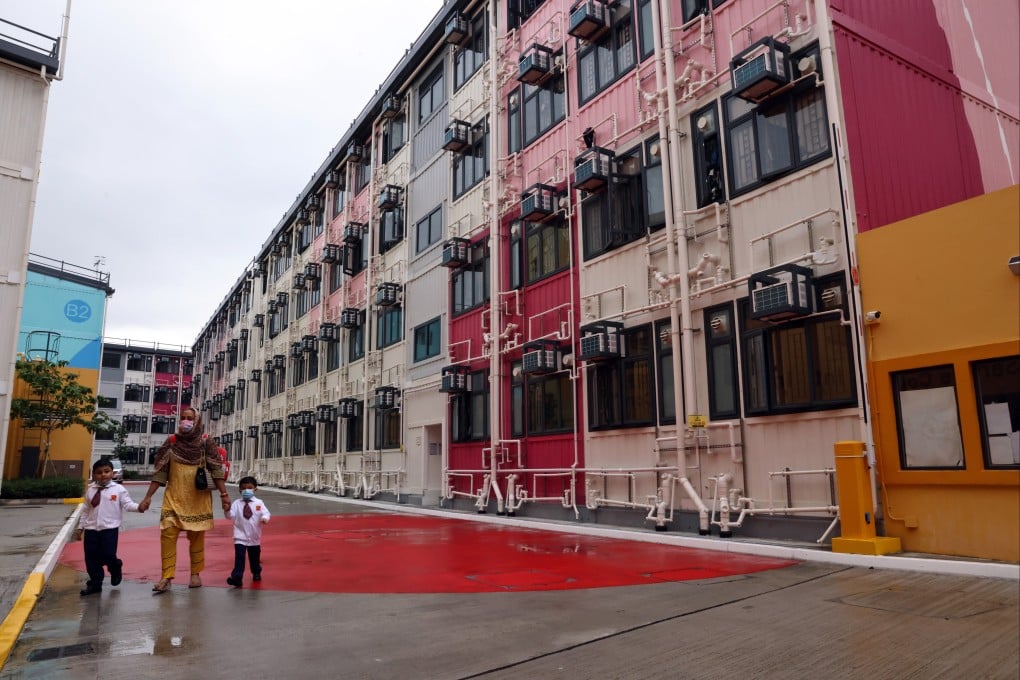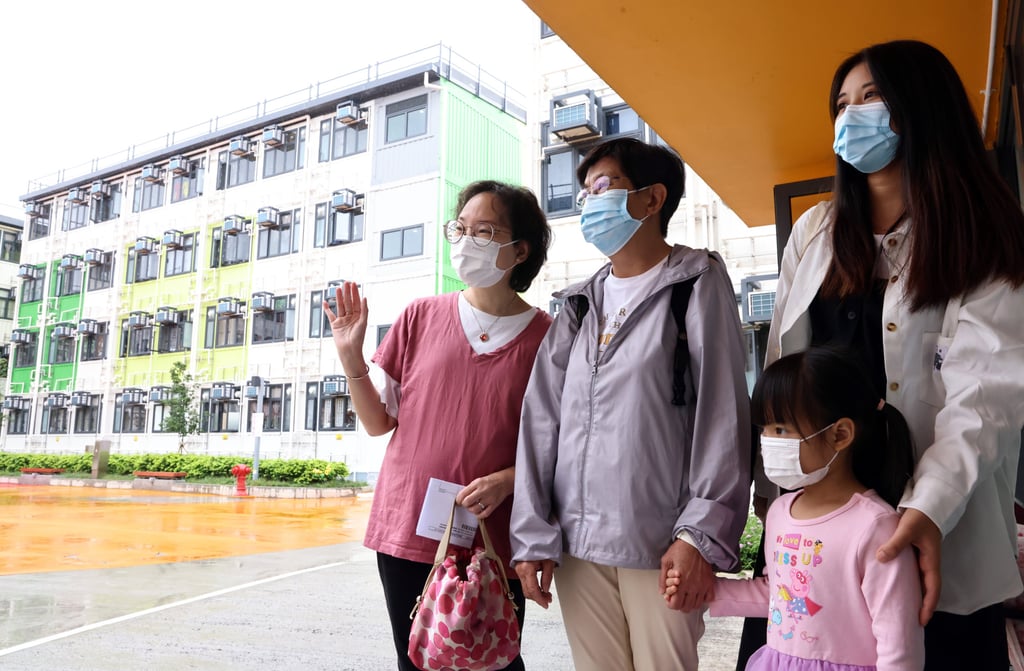Yuen Long too remote? Hong Kong transitional housing project for poor families has 800 empty flats, but no takers
- Welfare group running project hopes Housing Bureau can tell public flat applicants about vacancies
- Families who have moved into New Territories project say life is better than in subdivided spaces

Housewife Joanne Au* could not be happier at moving into her temporary home in Yuen Long, in Hong Kong’s New Territories, with her husband and four-year-old daughter.
“It is very cool here,” Au said. “The environment is comfortable and new.”
Her daughter has also enjoyed attending art and singing lessons at United Court, a transitional housing project meant for low-income families waiting years for their public housing flats.
Au said life here was better than when the family lived in a tiny “glass house” on the roof of a building in the same district.

“The windows had no grilles and we were always worried that our daughter would open the windows, so we kept them closed,” said Au, in her twenties. “It was also very hot and stuffy.”
United Court, with eight four-story blocks and 1,800 flats, is operated by the Hong Kong Sheng Kung Hui Welfare Council.